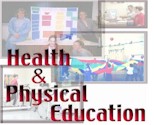


Conceptual Framework Summary
Knowledgeable: MSUM candidates display competence in their subject matter, built upon a strong grounding in liberal studies. MSUM candidates understand the principles of learning, assessment and technology. They understand and apply legal and ethical considerations to all aspects of their work. MSUM candidates are able to integrate theory and practice, and view learning as an active process. MSUM candidates demonstrate the ability to model connections between philosophical foundations and best practices in the field. As life-long learners, MSUM candidates engage in research and complex thinking. They design opportunities for others to seek knowledge and to understand themselves as members of the world community.
Reflective: MSUM candidates engage in thoughtful analysis of the meaning and significance of their actions, decisions, and results with regard to their work in order to assess progress in meeting this guiding principle. It is through this reflective process that candidates improve instruction, implement new ideas, abandon ineffective methodologies, and enhance learning outcomes for their students. MSUM candidates are skilled at analyzing their teaching from a variety of perspectives and identifying connections between teaching strategies and student learning. in addition, candidates utilize a variety of techniques to question their procedures and consider alternatives for instruction and student growth. MSUM candidates recognize learning, motivational, and developmental variables and relate those dimensions to their teaching practices. Finally, MSUM candidates bring a questioning spirit to received wisdom and conventional practice when needed.
Humanistic: MSUM candidates value the personal worth of each individual. This is based on a belief in people's potential and innate ability to develop to their fullest. MSUM candidates' actions are grounded in knowledge of different cultural and ethnic groups within the world community, and in knowledge of the influence of culture and history, ethnicity, language, gender and socio-economics on one's life. This knowledge base informs candidates' decision-making as they create environments that promote freedom, compassion, and success for all learners. MSUM candidates are fair-minded in their interactions with others, as well as sensitive to and accepting of individual differences. Further, MSUM candidates have an understanding of aesthetics and the diversity that is part of the human experience and will incorporate this knowledge into their work. MSUM candidates recognize and accommodate a variety of linguistic and nonlinguistic interpersonal skills in their actions with others MSUM candidates foster resiliency in the students with whom they work and model these qualities in their own work.
Creative: MSUM
candidates understand the powerful resources of the arts and sciences
and use their knowledge of these areas to bring the best of their
imaginative and creative acts into the classroom. MSUM candidates
recognize the important role creativity plays in the design of
instruction and classroom environment. They will, for themselves and for
their students, meet new situations with resourcefulness, excitement and
curiosity, with an investigative attitude, and with the ability to pose,
seek and design solutions to problems. MSUM candidates are cognizant of
the aesthetic elements of the world and draw on that knowledge to make
curricular decisions designed to help students not only learn about
aesthetics, but to also learn how to think about the world at large.